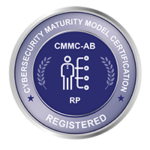Only a select few companies, let alone countries, can say they were at the forefront of the work from anywhere movement prior to COVID-19. The United Arab Emirates (UAE) was not one of those select few. With an office-centric work culture, UAE companies typically increase information security spending by 5.6% every year bolstering their cybersecurity efforts, but not necessarily protecting individuals’ on their home networks, as employees transitioned abruptly to working from home due to COVID-19. With this transition, UAE companies found themselves the victims of another pandemic – a cybercrime pandemic.
The Facts
The UAE saw a 250% increase in cyberattacks by December 2020 as bad actors took advantage of this forced period of digital transformation. With the corporate attack surface larger than ever before, more attention is now given to employees’ mobile devices, particularly smartphones.
Data Breach Repercussions
According to a Grant Thornton report titled “Cyber-crime: avoid paying the price,” smartphones are one of the most common attack vectors for stealing enterprise data. As employees exchange communications using their company-owned or personal smartphones, they are exposing enterprise data to unignorable risks. Should a data breach or hack occur, the organization would be forced into crisis response mode as the incident is investigated, mitigated, and remediated. An IBM study found that the average cost of a data breach in Saudi Arabia and the UAE in 2020 was $6.53M USD (Dh23.98m). This alarming price tag is enough to make any CISO call every vendor they can find to prevent such a detrimental incident.
Accountability & Visibility
Beyond the need to secure mobile devices, is the uncertainty of how to properly create records of accountability when other security measures, such as video surveillance (specifically in the financial sector), are now obsolete. Lack of visibility means enterprises don’t have an audit trail should they need to present it for compliance purposes. This creates a host of legal problems. Thus, in addition to mobile security, UAE companies need a means of tracking data.
Finding the Right Solution
The trouble with the so-called “go-to” big names is that they aren’t mobile security specialists. They offer so many other solutions and services that mobile is simply looped into their portfolio of offerings out of obligation, not expertise. A targeted security problem calls for a targeted solution.
That’s why SyncDog’s Secure.Systems is designed to be a Trusted Mobile Workspace. Whether employees are working from home in the UAE or at an Airbnb abroad, our encrypted containerized application suite protects data on their devices, in transit, at rest, and in use. All the while, collecting company-owned tracking records that can be leveraged for adherence to sector-specific compliance and data security laws. It’s easily deployable – on-site, via the cloud, or a combination of both – whichever method an organization’s business processes require. Finally, recognizing that a security tool is only strong when used properly, we designed Secure.Systems to be highly intuitive for both the end user and designated admins, to mitigate the risk of employee shortcuts or workarounds and increase the efficiency of implementation and management.
__
An end-to-end mobile security solution is essential to fortify corporate infrastructure (in office and outside of it) against today’s most sophisticated cyberattacks. To learn more about SyncDog’s Secure.Systems, request a demo today!
